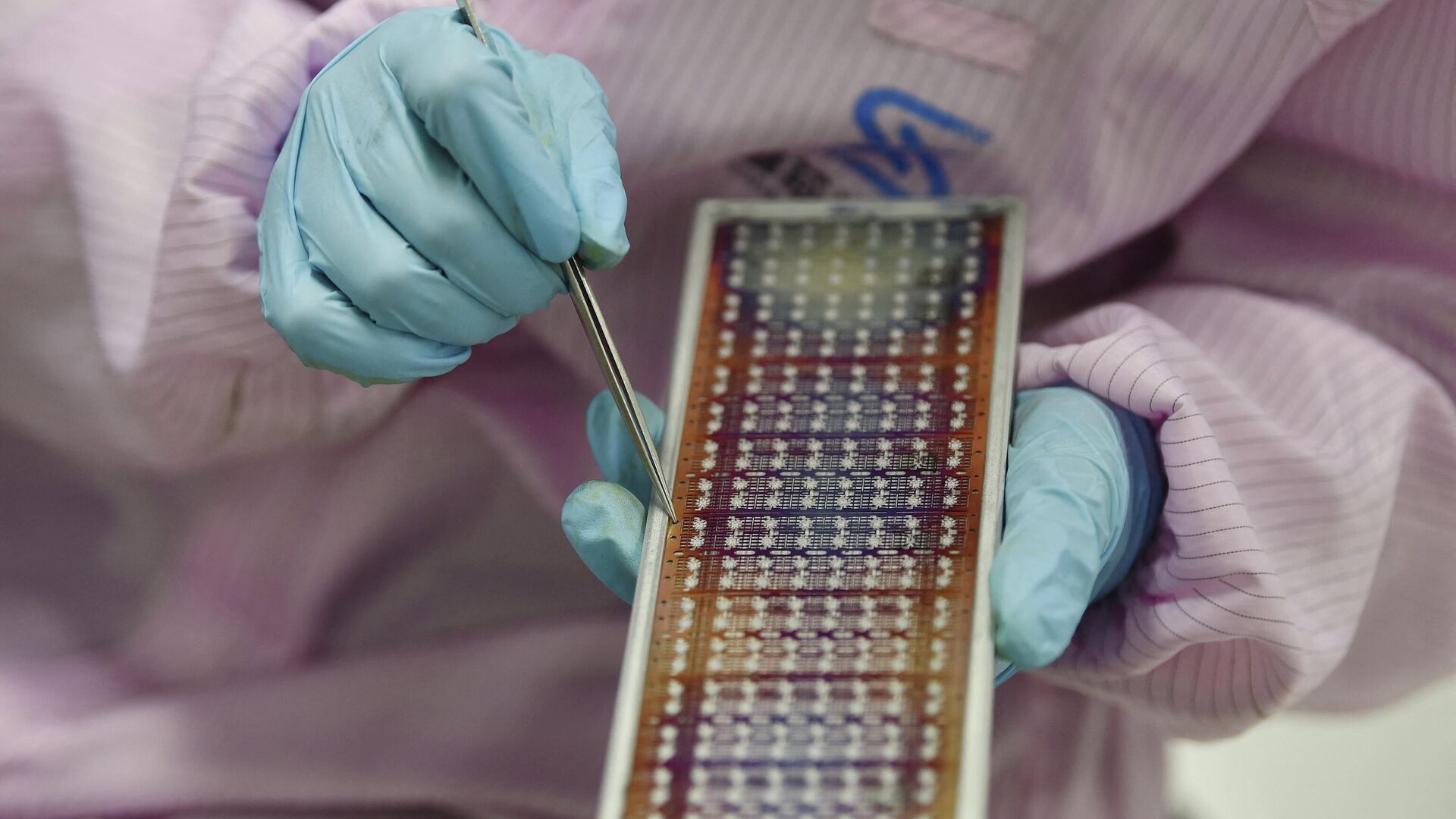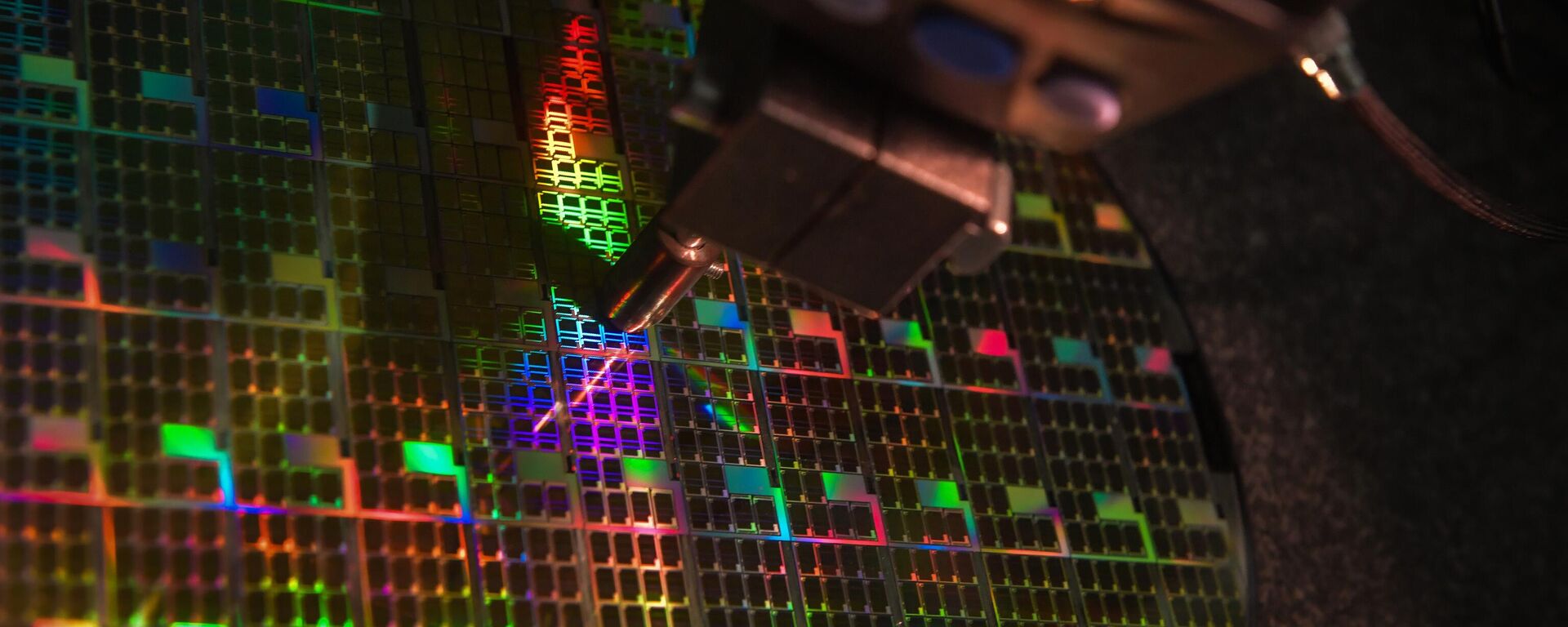https://sputnikglobe.com/20230729/biden-plans-to-ink-surbs-on-us-investments-in-chinas-high-tech-sectors-soon-1112244373.html
Biden Plans to Ink Curbs on US Investments in China’s High-Tech Sectors Soon
Biden Plans to Ink Curbs on US Investments in China’s High-Tech Sectors Soon
Sputnik International
It took the White House almost two years to hammer out a document on US outbound investment in China, related to certain investments in semiconductors, artificial intelligence and quantum computing.
2023-07-29T14:44+0000
2023-07-29T14:44+0000
2023-07-29T19:04+0000
economy
us
china
joe biden
semiconductors
order
chips
artificial intelligence (ai)
https://cdn1.img.sputnikglobe.com/img/07e7/07/1d/1112244211_0:159:3077:1890_1920x0_80_0_0_5c0909153eee5f3290ba070150401f48.jpg
President Joe Biden plans to sign an executive order to restrict critical US technology investments in China by mid-August, an American media outlet has cited unnamed sources as saying.The curbs reportedly aim to prevent American investors from providing funding and expertise to Chinese companies that allegedly could improve the speed and accuracy of Beijing’s military decisions.This comes after China’s envoy to the US Xie Feng warned earlier this month that Beijing would retaliate if Washington slaps the restrictive measures.US Treasury Secretary Janet Yellen responded by assuring China that the curbs would not significantly damage the ability to attract American investments and that these limits were narrowly tailored.She insisted that the restrictions were introduced not in retaliation for any specific actions from China or intended to curtail the PRC’s economic growth, a position she reiterated during her recent meeting with Chinese Vice Premier He Lifeng in Beijing.The document, which was included in an amendment package to the annual defense policy bill, stipulates speeding up the construction of US chip facilities by exempting certain projects from often lengthy environmental reviews.The environmental exemption would apply to certain projects that receive grants under the CHIPS and Science Act, which was signed by Biden into law last year and envisages earmarking about $52 billion in government subsidies for domestic microchip manufacturers.The developments unfold against the background of the US-China chip rivalry, with Washington slapping restrictions and expanding investments in the domestic chip industry in a bid to prevail in the race. China’s Ministry of Commerce recently responded by announcing that it would restrict exports to the US of rare earth metals, such as gallium and germanium, which are used to manufacture semiconductors.
https://sputnikglobe.com/20230719/chinese-chip-makers-accuse-us-of-disrupting-global-supply-chain-1111991311.html
china
Sputnik International
feedback@sputniknews.com
+74956456601
MIA „Rossiya Segodnya“
2023
Oleg Burunov
https://cdn1.img.sputnikglobe.com/img/07e4/09/0b/1080424846_0:0:2048:2048_100x100_80_0_0_3d7b461f8a98586fa3fe739930816aea.jpg
Oleg Burunov
https://cdn1.img.sputnikglobe.com/img/07e4/09/0b/1080424846_0:0:2048:2048_100x100_80_0_0_3d7b461f8a98586fa3fe739930816aea.jpg
News
en_EN
Sputnik International
feedback@sputniknews.com
+74956456601
MIA „Rossiya Segodnya“
Sputnik International
feedback@sputniknews.com
+74956456601
MIA „Rossiya Segodnya“
Oleg Burunov
https://cdn1.img.sputnikglobe.com/img/07e4/09/0b/1080424846_0:0:2048:2048_100x100_80_0_0_3d7b461f8a98586fa3fe739930816aea.jpg
us president joe biden, us executive order, us investments in china, chips and science act
us president joe biden, us executive order, us investments in china, chips and science act
Biden Plans to Ink Curbs on US Investments in China’s High-Tech Sectors Soon
14:44 GMT 29.07.2023 (Updated: 19:04 GMT 29.07.2023) It took the White House almost two years to hammer out a document on US outbound investment in China, related to certain investments in semiconductors, artificial intelligence and quantum computing.
President Joe Biden plans to sign an executive order to restrict critical US technology investments in China by mid-August, an American media outlet has cited unnamed sources as saying.
The order, which pertains to semiconductors, artificial intelligence and quantum computing, won’t affect any existing investments and will only prohibit certain transactions, according to the sources.
The curbs reportedly aim to prevent American investors from providing funding and expertise to Chinese companies that allegedly could improve the speed and accuracy of Beijing’s military decisions.
The sources claimed that the restrictions “won’t take effect until next year, and their scope will be laid out in a rulemaking process, involving a comment period so stakeholders can weigh in on the final version.”
This comes after China’s envoy to the US Xie Feng warned earlier this month that Beijing would retaliate if Washington slaps
the restrictive measures.
US Treasury Secretary Janet Yellen responded by assuring China that the curbs would not significantly damage the ability to attract American investments and that these limits were narrowly tailored.
“These would not be broad controls that would affect US investment broadly in China, or in my opinion, have a fundamental impact on affecting the investment climate for China,” Yellen told an American broadcaster.
She insisted that the restrictions were introduced not in retaliation for any specific actions from China or intended to curtail
the PRC’s economic growth, a position she reiterated during her recent meeting with Chinese Vice Premier He Lifeng in Beijing.
In a separate development this week, the US Senate overwhelmingly supported a legislation that obliges American companies to notify federal agencies of investments in Chinese technologies, including those related to semiconductors and artificial intelligence.
The document, which was included in an amendment package to
the annual defense policy bill, stipulates speeding up the construction of US chip facilities by exempting certain projects from often lengthy environmental reviews.
The environmental exemption would apply to certain projects that receive grants under the CHIPS and Science Act, which was signed by Biden into law last year and envisages earmarking about $52 billion in government subsidies for domestic microchip manufacturers.
The developments unfold against the background of
the US-China chip rivalry, with Washington slapping restrictions and expanding investments in the domestic chip industry in a bid to prevail in the race. China’s Ministry of Commerce recently responded by announcing that it would restrict exports to the US of
rare earth metals, such as gallium and germanium, which are used to manufacture semiconductors.




